Why the Kuril Islands are so important
Leaders of Japan and Russia holding landmark summit over the long-disputed archipelago
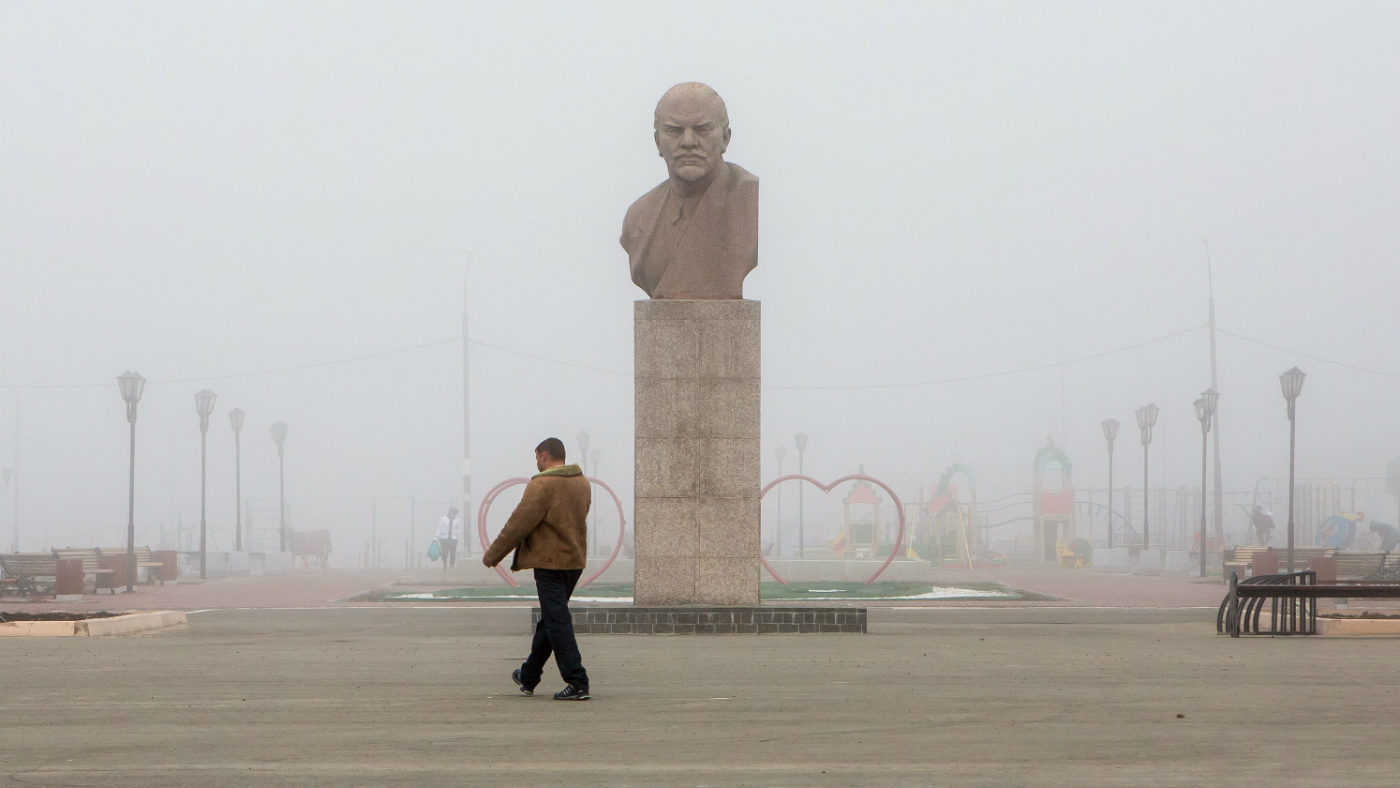
A free daily email with the biggest news stories of the day – and the best features from TheWeek.com
You are now subscribed
Your newsletter sign-up was successful
Officials from Russia and Japan are meeting today discuss the sovereignty of the disputed Kuril Islands, in a bid to resolve a diplomatic dispute that has raged for decades.
The southernmost four islands of the remote archipelago, situated north of the Japanese island of Hokkaido, were seized by the Soviet army in the closing days of the Second World War as part of a surprise attack on Japan, which has never formally recognised Russia’s claims to the land.
The Times reports that because of this dispute, the countries have never signed a peace treaty officially ending the War, preventing political and economic cooperation.
The Week
Escape your echo chamber. Get the facts behind the news, plus analysis from multiple perspectives.

Sign up for The Week's Free Newsletters
From our morning news briefing to a weekly Good News Newsletter, get the best of The Week delivered directly to your inbox.
From our morning news briefing to a weekly Good News Newsletter, get the best of The Week delivered directly to your inbox.
Now, international observers are hoping that Russian President Vladimir Putin and Japanese Prime Minister Shinzo Abe can finally reach some form of resolution, during talks today in Moscow where the status of the Kuril Islands is “expected to be high on the agenda”, says news agency Sputnik.
But while the two leaders have been “making optimistic noises for months about a compromise over the islands”, such hopes “have receded in recent days amid tough talk from Moscow”, adds The Times.
President Putin is facing growing pressure to reject any claims by Japan, following protests in the Russian capital this weekend during which hundreds of citizens chanted “Kurils are Russian land”, CNN reports.
So why exactly have the islands caused so much friction?
A free daily email with the biggest news stories of the day – and the best features from TheWeek.com
Where are the Kuril Islands?
The Kuril Islands are a chain of 56 islands stretching from the southernmost tip of the far eastern Russian oblast of Kamchatka to Hokkaido, the northernmost island of Japan. The chain separates the Sea of Okhotsk from the north Pacific Ocean.
Russian empress Catherine the Great claimed sovereignty over the Kuril Islands in 1786 after her government declared they were discovered by “Russian explorers” and therefore “undoubtedly must belong to Russia”, Arab News reports. The first treaty between tsarist Russia and Japan, signed in 1855, stipulated that the border between the two countries be drawn just north of the four islands closest to Japan - Iturup, Kunashir, Shikotan and Habomai.
In 1875, a new treaty handed Japan the entire archipelago in exchange for Russia gaining full control of the nearby island of Sakhalin.
But Japan seized back control of the southern half of Sakhalin in 1905 after claiming victory in the Russo-Japanese War - sparking tensions that would resurface at the end of the Second World War, when the Soviet Union took control of the entire chain following Japan’s surrender.
Although Japan recognises Russia’s sovereignty over the majority of the islands, it continues to insist that Moscow’s claims over the four southernmost islands are illegal.
Why are the islands important?
Although the entire island chain has a total population of only around 20,000 people, the South Kurils are of significant strategic importance to Russia owing to their location. Because the strait between Kunashir and Iturup does not freeze over in winter, control of the islands ensures Russia has year-round access to the Pacific Ocean for its Pacific Fleet of warships and submarines based in Vladivostok.
Arab News reports that Russia has also constructed military bases on the archipelago and has deployed missile systems on the islands, which are “rich in hot springs and minerals and rare metals such as rhenium”, used in the production of supersonic aircraft.
What do the two countries say?
In 1956, the Japan-Soviet Joint Declaration saw Russia propose returning the two islands closest to Japan as tensions eased, but Tokyo rejected the deal, in part because the two islands represent only 7% of the land in question, the BBC reports.
However, Al Jazeera reports that Putin and Abe “agreed in November to accelerate negotiations” based on the 1956 proposal, with Abe said to be considering abandoning hope of getting back the larger islands of Kunashir and Eturup.
But in recent days Russian officials have shifted away from the idea of an agreement between the two countries, with Foreign Minister Sergei Lavrov seemingly trying to “temper Japanese expectations of an imminent deal”, the news site adds.
Lavrov, Moscow’s top diplomat, told reporters last week that “sovereignty over the islands was non-negotiable”, adding: “This is Russia’s territory. This is our basic position and without a step in this direction it is very hard to expect progress on other issues.”
“Japan is the only country in the world that cannot fully recognise the outcome of World War Two,” Lavrov added.
Japan Today notes that the Kremlin “has ridden a wave of nationalism following Moscow’s annexation of Crimea from Ukraine in 2014, and any attempt to structure an agreement with Japan around a territorial compromise would likely be poorly received”.
But Moscow says Tokyo is “distorting” information about today’s talks in order to push its agenda in claiming Kunashir and Eturup, reports RT, formerly Russia Today. Putin has said the wording of the 1956 declaration is too “vague” to form the basis of a legitimate handover, the Moscow-based news site adds.
Meanwhile, Al Jazeera says that relations between Japan and Russia may have soured as a result of recent comments by Japanese foreign minister Taro Kono, who reportedly suggested that solving the territorial dispute with Russia would help efforts by Japan and the US to “deter China”.
Lavrov called that claim “outrageous”, adding that it raised new questions about the independence of Japanese foreign policy.
“We wondered whether Japan could be independent given such reliance on the US and we were told that Japan would act proceeding from its national interests,” Lavrov said. “We would like to hope it will indeed be so.”
-
 Political cartoons for February 19
Political cartoons for February 19Cartoons Thursday’s political cartoons include a suspicious package, a piece of the cake, and more
-
 The Gallivant: style and charm steps from Camber Sands
The Gallivant: style and charm steps from Camber SandsThe Week Recommends Nestled behind the dunes, this luxury hotel is a great place to hunker down and get cosy
-
 The President’s Cake: ‘sweet tragedy’ about a little girl on a baking mission in Iraq
The President’s Cake: ‘sweet tragedy’ about a little girl on a baking mission in IraqThe Week Recommends Charming debut from Hasan Hadi is filled with ‘vivid characters’
-
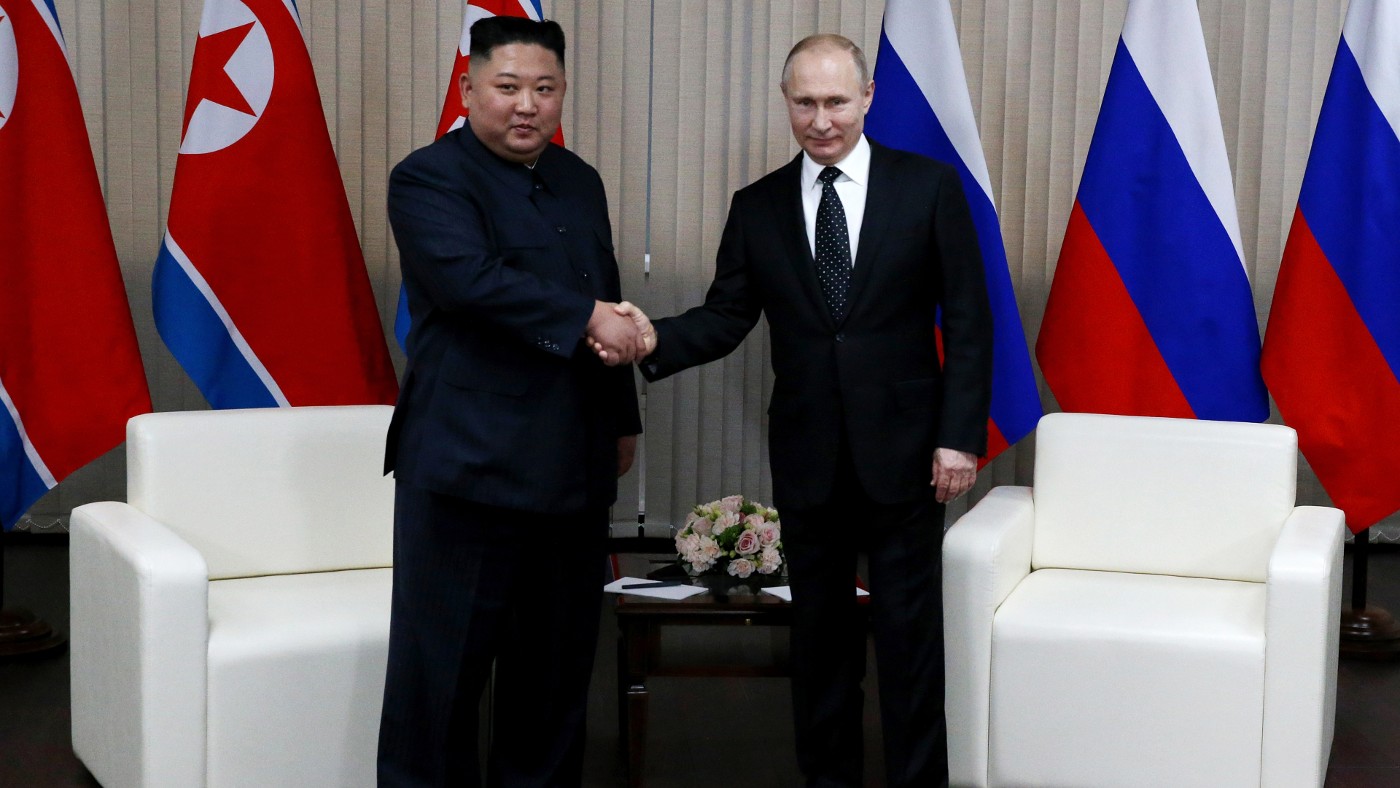 Would North Korean weapons tilt the war Russia’s way?
Would North Korean weapons tilt the war Russia’s way?Today's Big Question Putin wants to boost ‘depleted stocks’ but Pyongyang’s arms may be in poor condition
-
 Nobody seems surprised Wagner's Prigozhin died under suspicious circumstances
Nobody seems surprised Wagner's Prigozhin died under suspicious circumstancesSpeed Read
-
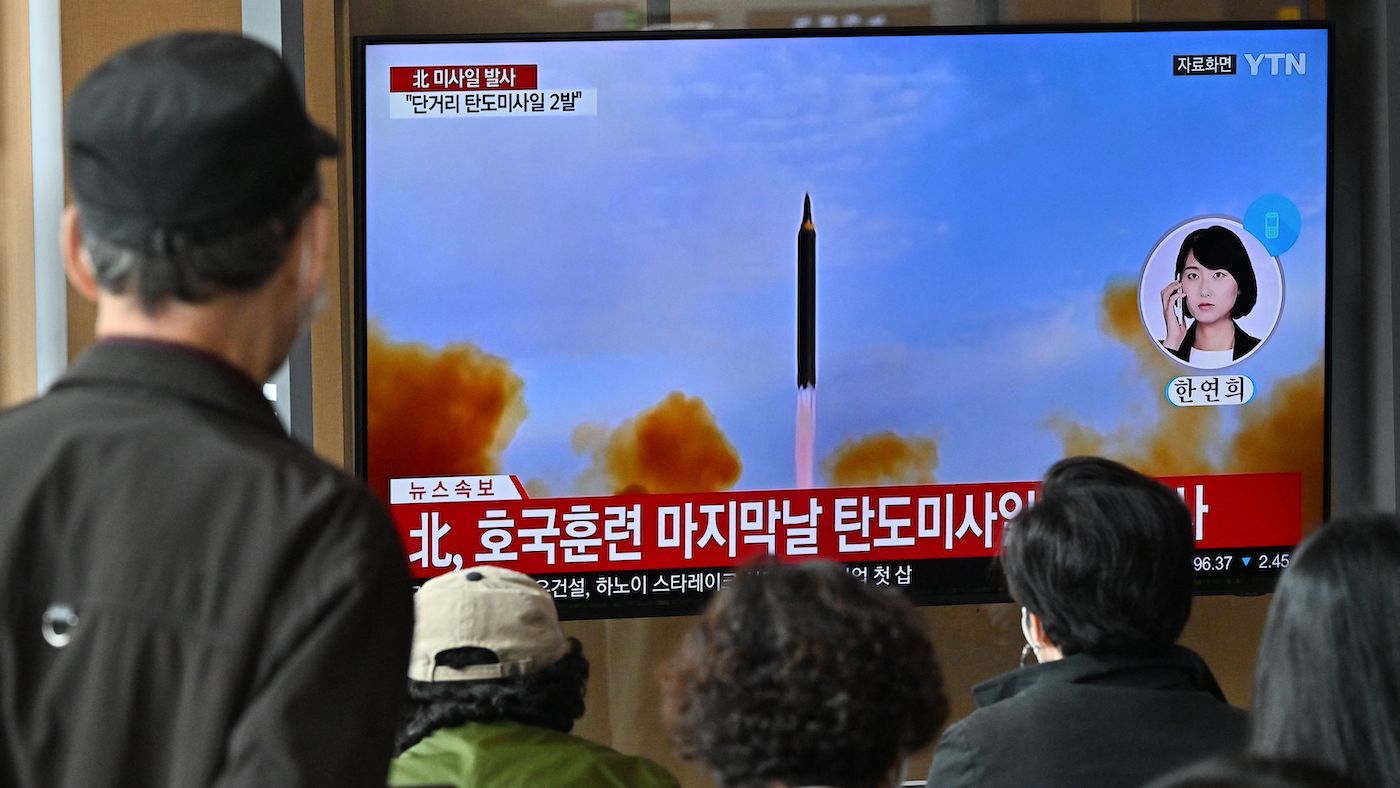 North Korea launches 1,000km missile towards Japan after threatening US
North Korea launches 1,000km missile towards Japan after threatening USSpeed Read Pyongyang warned Washington of ‘shocking’ repercussions over alleged spy planes
-
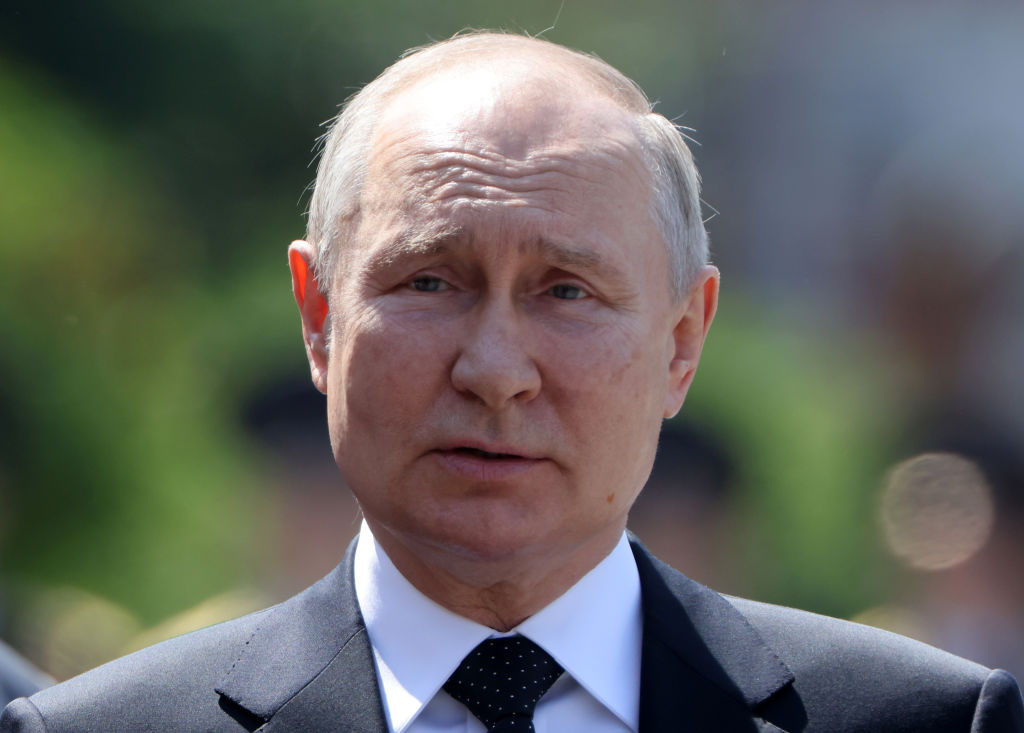 Putin's grip on power apparently damaged after Wagner mutiny
Putin's grip on power apparently damaged after Wagner mutinySpeed Read
-
 Company teaches mask-wearers to smile again
Company teaches mask-wearers to smile againfeature And other stories from the stranger side of life
-
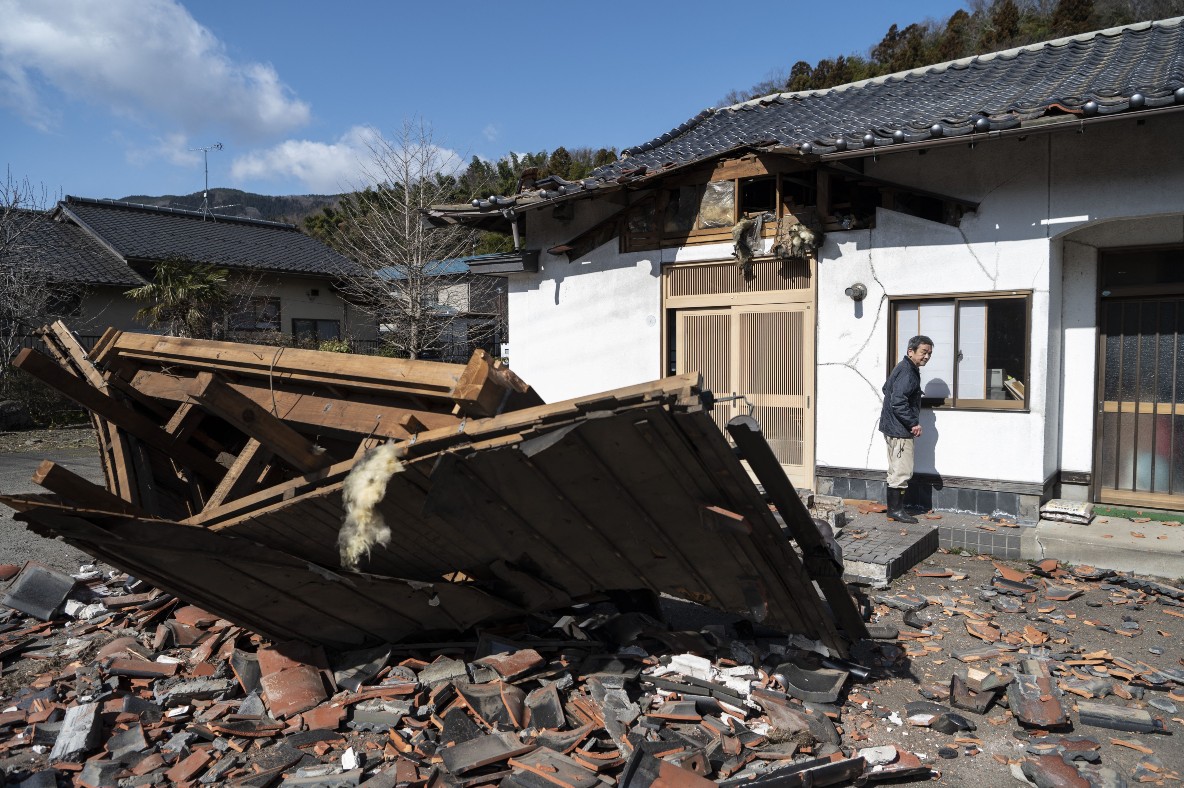 Japanese vending machines to automatically offer free food in earthquakes
Japanese vending machines to automatically offer free food in earthquakesSpeed Read Supply of nutritional supplements and drinks would be unlocked in the event of a major disaster
-
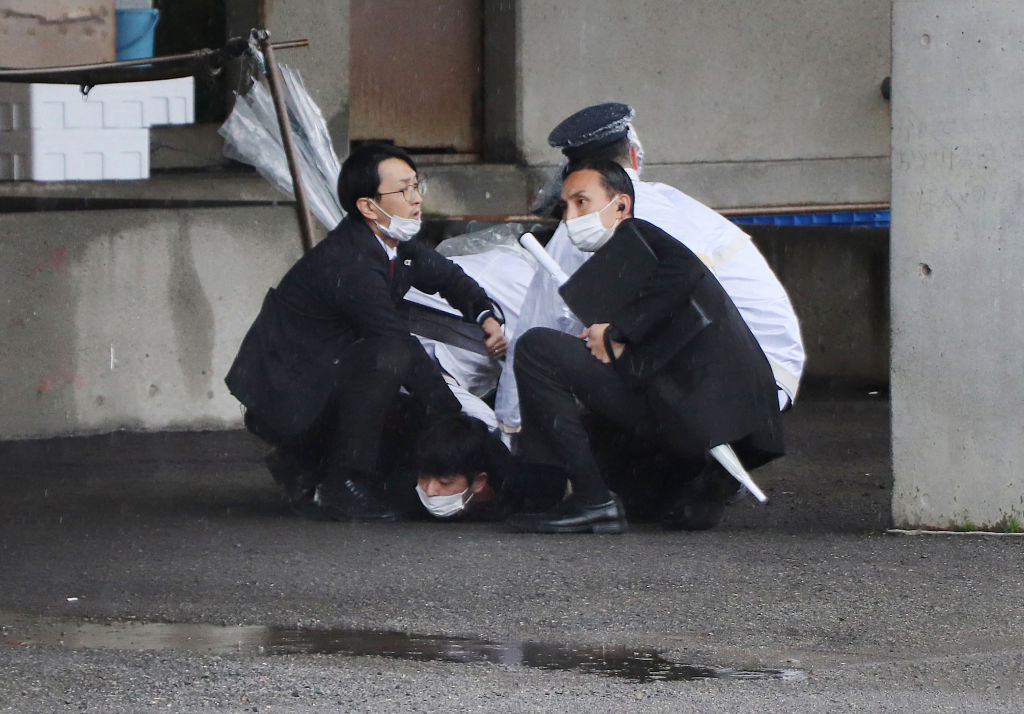 Man throws explosive device at Japanese prime minister
Man throws explosive device at Japanese prime ministerSpeed Read
-
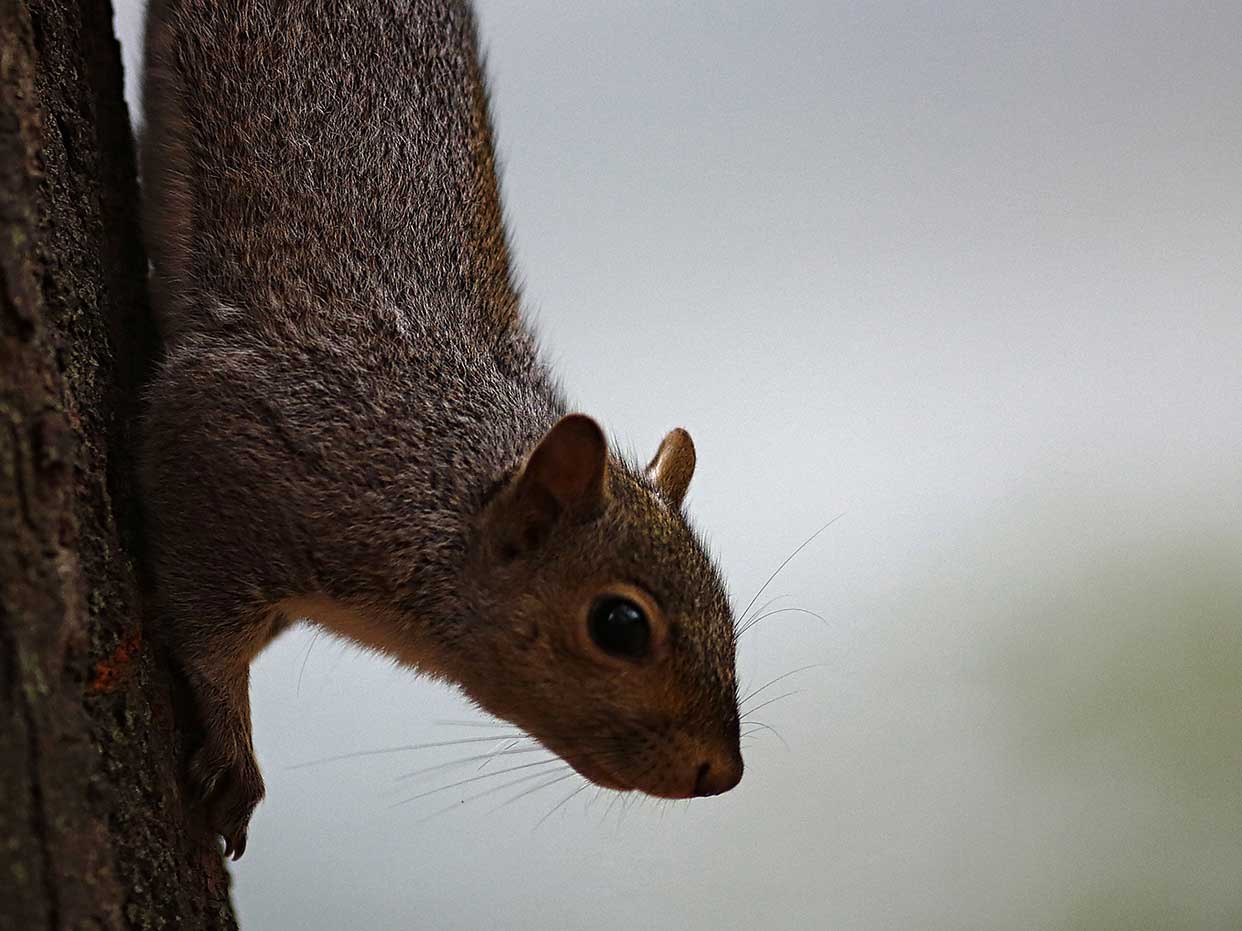 Squirrels’ reign of terror in kitchen
Squirrels’ reign of terror in kitchenfeature And other stories from the stranger side of life